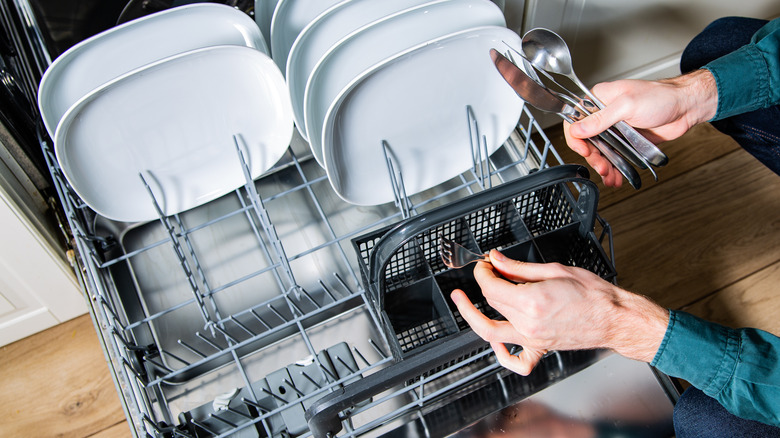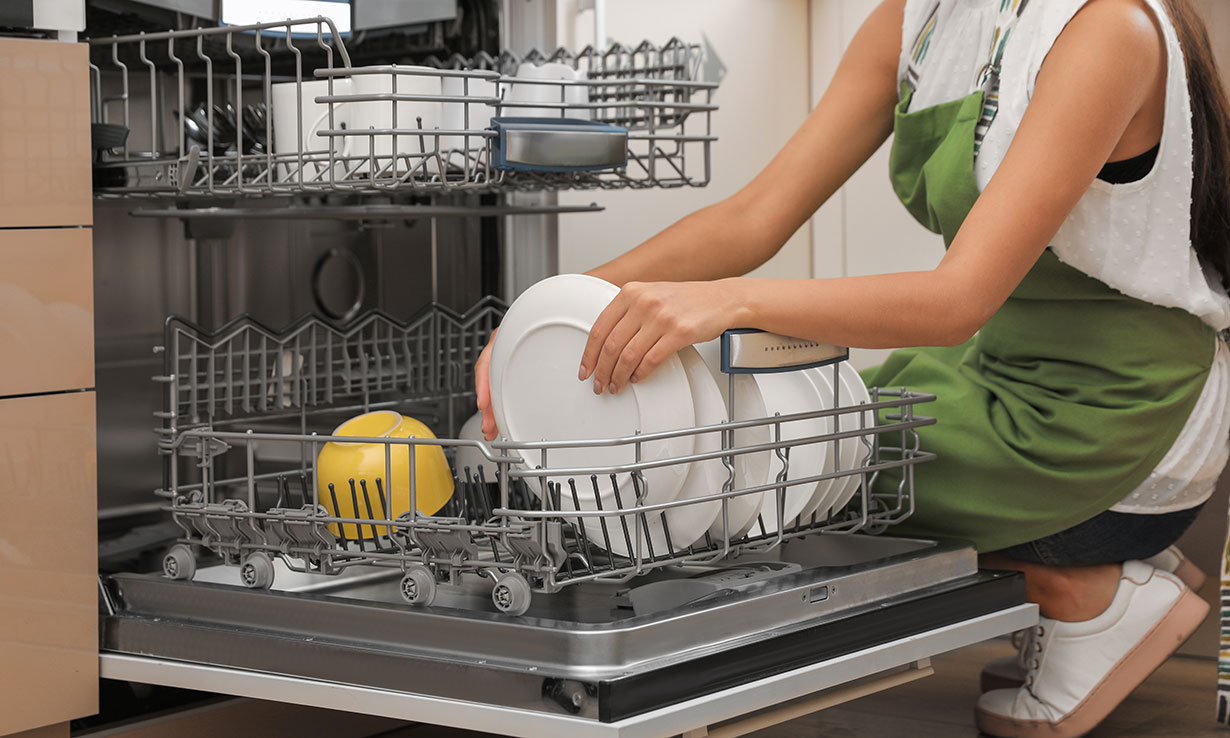Appliance Woes: Understanding Possible Issues
Appliance Woes: Understanding Possible Issues
Blog Article
Just how do you really feel with regards to How to Troubleshoot & Repair a Dishwasher?

Having your dishwasher malfunction or malfunction can be a big deal as well as create some pain in the house. Dishwashing machines are makers that we utilize to clean meals and also cutleries automatically to save us the stress and anxiety of manually doing it.
Like every other device that reduces human initiative, dishwashers can break down and establish some fault eventually in time. There are numerous faults your dishwashing machine might establish, as well as while a few of them can be resolved by replacing some parts or fixing them, various other more severe issues will certainly call for that you get a brand-new dish washer.
This post will certainly recognize a couple of common faults your dishwasher could establish to prevent its general performance and also how these mistakes can be addressed.
Typical Faults
Common dishwashing machine faults can vary from minor to significant ones. Depending upon the extent, you will certainly either require the services of professional plumbings to repair or change it.
Several of one of the most usual faults include:
Dripping Dishwashing machine
This is most likely one of the most day-to-day dish washer problem, as well as the good news is that it is simple to determine. Leaks happen because of a number of reasons, and also the leaks can bungle your kitchen area. Usual causes of dishwashing machine leakages include;
Bad-Smelling Dishwashing machine
This is one more common dishwasher problem, and it is mainly brought on by food particles or oil remaining in the device. In this case, look for these fragments, take them out as well as do the dishes with no meals inside the device. Wash the filter extensively. That will help remove the bad smell. Make sure that you eliminate every food particle from your recipes prior to moving it to the equipment in the future.
Inability to Drain
Occasionally you may notice a large quantity of water left in your bathtub after a clean. That is most likely a drainage trouble. You can either check the drainpipe hose pipe for damages or clogs. When doubtful, contact an expert to have it inspected and also fixed.
Does not clean appropriately
If your recipes and also cutleries appear of the dish washer and also still look filthy or unclean, your spray arms might be an issue. In most cases, the spray arms can get clogged, and also it will require a fast clean or a substitute to work properly once again.
Verdict
Several of these usual dishwashing machine mistakes can be taken care of quickly in your home, but in some cases, the faults could be enormous as well as might require the interest of specialists. If you live in Rochester, Syracuse, and various other parts of America, allowed the specialists correctly identify what could be wrong with your dishwashing machine and also extend a service.
We additionally mount dishwashing machines if you just purchased a new one or plan to replace your very own. With our several years of experience in the sector, we are sure to provide you the most effective possible services.
7 Common Dishwasher Problems (and How to Fix Them)
Dirty, smelly, possibly covered in cheese. Is there anything more frustrating than opening the dishwasher only to find the dirty dishes are still there?! I mean, the main reason you buy a dishwasher is so you don’t have to deal with dirty dishes. C’mon dishwasher, you had one job.
A little maintenance goes a long way when it comes to appliances, but the truth is nothing lasts forever (sadly). That doesn’t mean it’s hopeless, though. With a handful of simple tricks, you can fix some of the most common dishwasher problems and bring that sparkle back into your dishwasher and back into your life.
My Dishes Are Still Dirty
This is at the top of a list for a reason. Dirty dishes are common and frustrating. Easy fixes first; check if your dishwasher has a manual filter and make sure that it’s clean and clear of debris. Then, as you load your dishwasher, make sure that the spray arms can rotate freely, spraying water throughout the drum. If they’re blocked or obstructed, you won’t be getting optimal cleaning performance. If the problem continues, check if your spray arms are clean and moving freely as grease and food particles can prevent them from spinning.
Also, stop pre-rinsing your dishes! Modern dishwashers use sensors to determine the soil level of the dishes. If you rinse them off too much, your dishwasher may select a shorter cycle than is necessary. Modern detergents also use enzymes that activate when they come in contact with food particles. If you remove the particles, your detergent will be less effective too.
My Dishes Aren’t Drying
The easiest fixes here are to add Rinse Aid to your dishwasher when you start the load to assist drying, and to make sure you don’t stack plastic against plastic or other hard to dry materials. It’s also a good idea to open the dishwasher door when the cycle is complete to release steam and prevent condensation from settling on your dishes (some higher-end machines even open automatically). If your dishwasher has a heating element, you may have to check if it is working properly. Check also the fan if your dishwasher has a stainless steel tub that uses blown radiant heat to dry.
My Dishwasher Smells Bad
If your dishwasher smells bad, make sure your filter and screens are cleaned of any grime and food residue. Check the spray arms and gasket on the door to make sure there’s no grease or food waste there as well. If you’ve done that, then it may just be time to sanitize the drum. Place a small bowl with vinegar in the upper basket of your empty dishwasher and run the sanitize cycle (or the hottest cycle you’ve got) to blast away bad odours.
My Dishwasher Won’t Start
If your dishwasher won’t start there’s often an electrical problem, and if you’re lucky that means there’s a very easy fix. Ask yourself, have I tried turning it off and on? If not, then do that. If it’s still not working, try unplugging and re-plugging in the machine and double-check your breaker to make sure power is feeding the unit. If it’s a mechanical problem, then it may be that your door isn’t latching properly and a simple realignment will get things sorted out.
My Dishwasher Won’t Fill
If possible, check your intake valves and make sure that the screen is clear and that there’s no blockage obstructing water flow. If that’s not it, then the float and/or float switch located at the bottom of the drum could be the problem. Make sure that the electrical connections are intact and that the mechanism hasn’t been damaged or blocked in any way.
https://www.wardells.ca/blog/7-Common-Dishwasher-Problems--and-How-to-Fix-Them-

I was shown that article about How to Troubleshoot & Repair a Dishwasher from a good friend on a different web address. Sharing is nice. Who knows, you will be doing someone a favor. We treasure reading our article about The Most Common Dishwasher Problems.
Request An Appointment Report this page